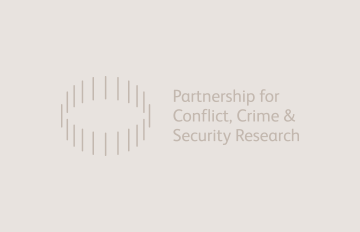
Anthropology of Disasters: Managing Risks in the Indian Ocean
Mon 13, Jun 2016Groupe URD is joining hands with the French Red Cross’s PIROI initiative (the Indian Ocean Regional Intervention Platform) to explore how a scientific approach to the anthropology of disaster can help the design of modern risk management policies. Written by François Grunewald.
Read more
The Art of Communicating Knowledge in the Digital Age
Thu 9, Jun 2016At PaCCS, we are interested in how animation can be used to communicate insights from research, reaching out to a wider audience. We have invited two small companies -Scriberia & Kindea Labs- providing this service to describe their work in this area.
Read more
The Personal Data and Trust Network
Mon 16, May 2016The Personal Data and Trust Network is an initiative established between EPSRC, the Digital Catapult, the Knowledge Transfer Network, Innovate UK and the three RCUK Digital Economy Hubs. It consists of ten thematically-defined groups and, along with Dr Alan Chamberlain from the University of Nottingham, I co-convene the Social and Cultural Innovation Group. The aim of the group is to map out the landscape of research challenges and emerging issues in relation to personal data and trust in this area of cultural and social innovation, including social justice.
Read more
White-Collar Crime, Organised Crime and the Regulation of ‘Enablers’
Thu 12, May 2016Once upon a time, the demonology of crime was a straightforward affair. In the black corner, there were shady, full-time ‘villains’ – usually from ‘the dangerous classes’ – who were labelled as ‘Organised Crime’. In the white corner, there were elites and their ‘servants’ (nowadays, employees) who, when they temporarily strayed or were the black sheep of otherwise respectable families, were labelled as ‘White-Collar Crime’. Nowadays, it is harder to distinguish white-collar and organised crime.
Read more
Predicting Online Radicalisation
Wed 11, May 2016The central aim of this project is to develop a conceptually-grounded algorithm that can be combined with social media analytics software to predict radicalisation of mainstream users. Our research questions are, how and why do people develop identification with radical Islam online over time?
Read more
Mathematics Crucial to Airport Baggage Screening
Tue 10, May 2016In 2005, a Surrey University spin out company CXR approached us at the University of Manchester for help developing a fast x-ray tomography system. We now have our own RTT 110 which is being tested and adapted to do fundamental science such as looking in to the mysteries of granular materials and two phase fluid flow, as well as rapid non-destructive testing for manufacturing.
Read more
British [Muslim] Values
Tue 3, May 2016In the UK today, there is a widely held perception of a fundamental conflict between so-called ‘British values’, and the values and practices of minority - frequently Muslim - communities. Our research project sets out to explore how this impression of conflict impacts upon Muslim individuals and communities living within the UK.
Read more
Following the Wires: Conflict and Power Outages in Beirut
Wed 27, Apr 2016Combining filmmaking, sociology and anthropology, this project follows the wires that crisscross the skyline and buildings of Beirut to articulate the impacts of electricity disruption on everyday life.
Read more
PaCCS Policy Briefing on “Religion and Contemporary Security Challenges”
Tue 22, Mar 2016Official Launch of our latest PaCCS Policy Briefing on “Religion and Contemporary Security Challenges”. Including insights from the work of our four leading researchers who have been studying perceptions about religion and security, faith and violent extremism.
Read more
INTEGRITY: Still a Long Way to Go
Tue 15, Mar 2016Promoting Ethical Behaviour and Preventing Wrongdoing in Organisations - Lack of integrity (or wrongdoing) continues to surface in both the private and public sector. Police forces around the world have tried to investigate the levels of corruption within their organisations and have adopted codes of conduct to address the shortcomings. But do they work?
Read more
